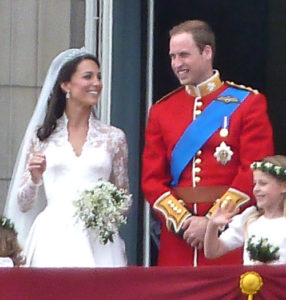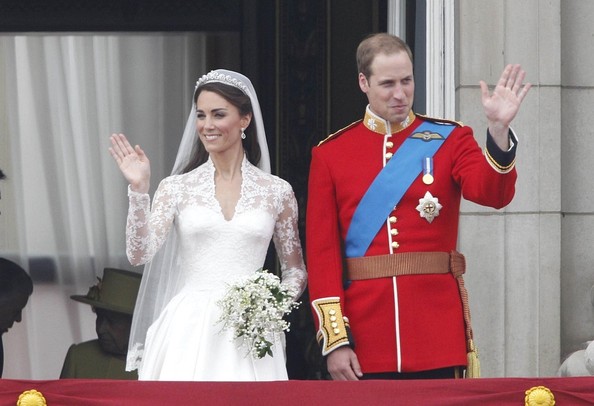
Victoria Alarcon
Features & Opinions Editor
Recently it seems impossible to go a day without seeing or hearing about the royal couple, the Duke and Duchess of Cambridge: Will and Kate. We see them in newspapers, television and just about every magazine on the stands; the image of their dazzling smiles and their meticulous hair, topped off by their glowing newlywed aura that can make even the most jealous person stop and stare. They have become a national phenomenon, persuading people to dress up in their fanciest outfits and hold tea parties with friends and family to celebrate their union.
But when it comes to York students, how many of us actually care?
With the 2011 Royal Tour beginning on June 30th and lasting nine days as the couple roams Canada, Excalibur went and found out if any students were genuinely excited. The results speak for themselves.
In a landslide decision, 71 per cent of students flatly stated that they were not interested in the royal couple. Five per cent said that they cared. The majority of students showed a similar level of enthusiasm when asked if they had watched the royal wedding on April 29th, with 59 per cent saying they had better things to do at the time.
Young Canadians have no shortage of passion for their idols; just ask Justin Bieber. Considering our country’s status as a British commonwealth, why is there such a resounding lack of interest from such a key demographic?
For some, it’s the simple fact that royalty does not play a huge role in their lives anymore.
“In Canada, we don’t really associate ourselves with them anymore. The Queen doesn’t have that same presence in our lives that she used to and because of that we don’t really care about it anymore,” says Manjot Randhawa, a third-year biology student. “I mean in England, a couple million came out to see it, they were excited about it because it was something personal to them. But we couldn’t really find anything personal in it.”
The role of the British monarchy in the lives of Canadians has historically been in decline since the signing of the British North America Act (now known as the Constitution Act) in 1867. While the Queen may be our sovereign on paper, the simple fact is that newer generations of Canadians can exist without acknowledging the monarchy in any shape or form.
Not only that, but from Victoria Day to sparse royal visits from the Queen, the only times we celebrate our British ties are when we are reminded to do so. Even then, we sometimes become distracted by the fireworks and glamour, and inevitably forget the true meaning behind them.
For some, it’s not just the small role the monarchy has in their lives that makes people less enthusiastic, but the literal financial cost that each visit brings.
In 2010, the Queen’s royal visit cost Canadians $2 million. The federal government has stated that Kate and William’s visit will cost around $1 million, with Canadians picking up the tab.
To say the least, it ticks students off.
“I don’t want to pay money for them. They’re already so rich so why do we have to pay money for them? It’d be better if they paid for themselves,” says Niloofar Ravaei, a third-year screenwriting major.
Though the amount Canadians pay is $1.53 per capita per year, there may be a deeper reason behind the anger Canadians have towards paying the bill. According to Tom Freda, national director of Citizens for a Canadian Republic, Canadians are upset about paying for the visit because it shows a form of inferiority to the monarchy.
“We see these people as celebrities. We don’t see ourselves as less of them. In Britain they still have this ingrained class system, which is gradually disappearing and eroding, but in Canada we don’t have an aristocracy and we don’t have that mindset. We have a republican mind of thinking,” explained Freda, who noted that Americans won’t have to pay anything for Kate and William’s visit to California since it will be funded by Audi.
Randhawa, who sees it the same way as Freda, echoed the same opinion: “They could be the future King and Queen, but it’s nothing but a label. Sure they’ll have money and wealth, but I think they’re like everyone else. They’re just ordinary people to us.”
If the money problem isn’t divisive enough, the biggest issue surrounding the royal trip could be one of national identity.
Since the time Canada was colonized to the signing of the Constitution Act, Canadians have fought hard to make their independence known in the shadow of our star-spangled neighbour. The impending visit of the royal couple may serve to remind many Canadians that we have yet to cut all ties to the crown.
“Where republicanism gets its traction is in the Canadian independence,” says Freda. “We’re the only member of the G8 who does not have its own distinct head of state, and we’re only one of two in the G20 except for Australia who will be taking initiative on it soon. Canada is a very strong and significant world power trying to break out of its middle power status […] How can we present to the world that we can be, or we should be, taken seriously when we’re not taking that last step to independence?”
So while the royal visit is said to be the largest Canada Day celebration in history, York students will be opting out and finding their own royal-free ways of celebrating our country’s independence.
Poll Results
Did you watch the royal wedding at 4am on April 29?
Yes – 14%
No – 72%
Some parts – 14%
Did you watch the other airings of the wedding later that day?
Yes – 16%
No – 59%
Some parts – 25%
Are you excited about the royal couple coming to Canada in July?
Yes – 5%
No – 71%
Somewhat – 24%
(Out of 100 York University students)
York students give royal couple the cold shoulder




